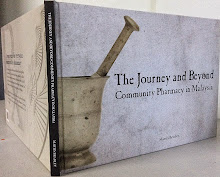The journey from Kuala Lumpur was long. Penang’s weather was customarily hot, humid and a tad rainy in August. Over the long ‘Merdeka’ (celebration of independence from British rule, rather like the 4th of July or American Independence Day) weekend I was taken, and welcomed, into the Gold Lotus (Chinese vegetarian) restaurant, by Buddhist vegetarians Ben Yeow and Lilian Ong. Their wonderful restaurant is on Lebuh Presgrave (or Presgrave Street, named after Edward William Presgrave, aka 3rd road) in Georgetown, on the island of Penang, Malaysia.
It’s said that Chinese vegetarian cuisine has existed for many centuries. One aspect of vegetarian Chinese cuisine may be traced back to the Western Han Dynasty (206 B.C.–9 A.D), and a Daoist Prince called Liu An (of Huai’nan).
It is claimed (by Li Shizhen’s Compendium of Materia Medica, no less) that Liu An was responsible for the invention of the soya bean curd or ‘dòufǔ’ (later re-named by Japanese as ‘tōfu’), by experimenting with flavouring soybeans with a seaweed called ‘Nagari’. It was thereafter that the production of tofu emerged, around 206 to 220 BC (during the previously mentioned Han Dynasty).
Eleven vegetarian dishes (quite possibly the earliest vegetarian recipes discovered in China) had been revealed in Jia Sixie’s book ‘Qi Min Yao Shu’, from the Chinese Northern Wei Dynasty (533-544 AD). Another ancient Chinese recipe book “Shan Jia Qing Gong” written 900 years ago (13th century) by Lin Hong zhuan, in the Southern Song Dynasty (1127-1279) suggests over one hundred different types of vegetarian food materials including flowers, herbs, fruits and soy products in popular recipes. In the Yuan, Ming, and Qing Dynasties, vegetarian dishes were even more popular.
It is known that during the annual Penang/Butterworth (Malaysia) Nine Emperor Gods Festival, Daoist devotees observe a strict vegetarian diet to cleanse their bodies and souls, for nine days. However, Penang Chinese vegetarianism has expanded over the decades. There are now over a score of Penang wholly vegetarian restaurants (many of which are Chinese) catering to burgeoning demand for plant-based alternatives. They are becoming more accessible and affordable, and not just at auspicious and religious times.
Parking in Georgetown, Penang, is difficult. We had to exit my friend’s vehicle some distance from the Gold Lotus restaurant which, as it turned out, was not such a chore, but rather an opportunity to explore some of the small shops in the area. Penang, like the smaller Malaysian cities, has plenty of petite industries run out of ageing shop lots, including the Oh Eng Huat Cake Shop, freshly baking and selling deliciously tiny round biscuits, coated with egg glaze. I was invited in to watch as the large trays came out of the oven, in racks, cooling ready to be packed, then proffered a round, flaky, biscuit which I quickly consumed. Back on those sweltering streets we walked past Chinese medicine shops and traders selling yellow ‘Dragon Fruit’, then thrilled a little when we saw the ‘A board’ sign ‘Gold Lotus’ standing on Lebuh Presgrave’s terracotta pavement. That board invited customers to sample ‘Petai Fried Rice’, ‘Mongolian Herbs Soup’, Tom Yam Fried Bihun’ and a whole host of mouth watering dishes.
Husband and wife team Ben and Lilian sat us down and took our orders. The menu, and the dishes as they came, had little to differentiate them from regular Malaysian Chinese fare. If I hadn’t know better, I could have been persuaded that we had ordered meat dishes, such was the authenticity of the presentation, and taste, of the cuisine at Gold Lotus. For lunch we had chosen an amazing omelette with oyster mushroom, and a spicy side sauce, resting on banana leaf; a mixed ‘oriental’ vegetable medley with a sweet and sour sauce; a light, slightly sour, curry with okra (ladies fingers) tomatoes and a dried slice of the Asam gelugur fruit, to give the sour taste. Then there was the kangkong (water spinach) vegetable with chopped mushrooms and shredded carrot, in its light sauce. Each was presented on substantial blue-glazed earthenware, while each dish was as delicious to the eye as it was to the tastebuds.
Although not a full-time vegetarian, after that meal from Gold Lotus, Penang, I am sorely tempted to further embrace vegetarian meals when I encounter them.










No comments:
Post a Comment